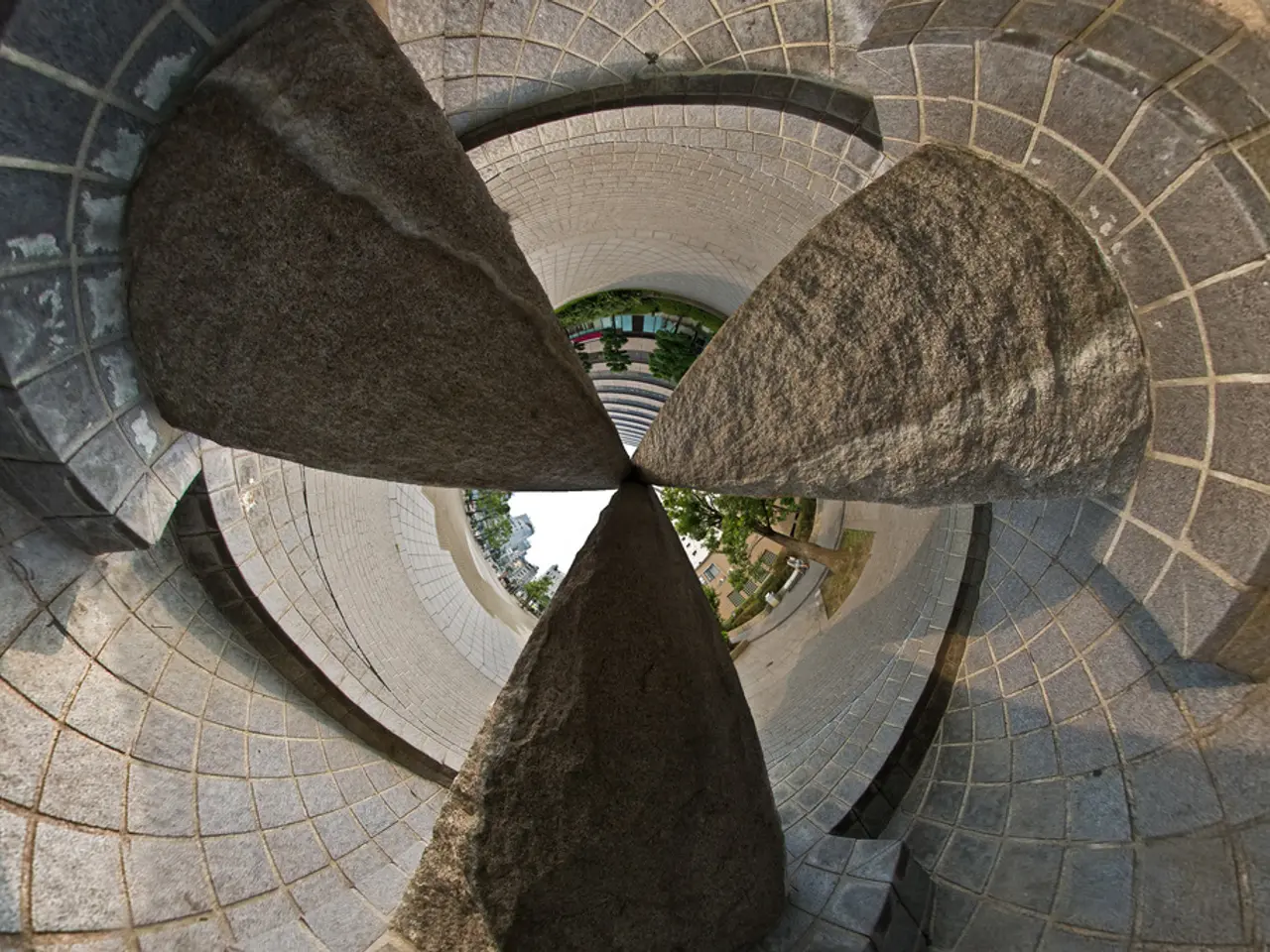Romanian filmmaker Andrei Epure delves into the concept of 'undermining realism' in his film 'Don't Let Me Die,' which earned him a spot as a player in the Locarno Film Festival.
In the heart of Romania, Andrei Epure's debut feature film Don't Let Me Die unfolds a captivating tale of Maria, a solitary woman in a small seaside town, who finds herself unexpectedly responsible for preparing the funeral of her mysterious neighbour, Isabela [2][3].
The film is an evocative exercise in sabotaging realism, as Epure questions the artificiality of realism and departs from contemporary cinematic traditions of his home country [6]. The plot unfolds episodically, with Maria navigating bureaucratic hurdles, legal ambiguities, and strange encounters while taking care of the burial [1][4].
The film delves into the fragile boundaries between life and death, human and animal, real and unreal [1]. The character of Isabela, played by Elina Loewensohn, undergoes a part-bestial metamorphosis in her final moments, symbolically linking to the howling dogs she leaves behind, reinforcing the film's interrogation of human-animal boundaries and existential isolation [1][3].
Isabela's character also reflects on anonymity, social indifference, and loneliness [3][5]. Inspired by real stories of people dying unnoticed, sometimes with their pets left helpless, the film adds a poignant social commentary to the poetic and mysterious narrative. Maria's emotionally detached yet gradually engulfed demeanor as she fulfills this strange caretaking role suggests an underlying inquiry into human numbness, possible mental fragmentation, and deathlike serenity [4].
The film's soundscape, crafted by Epure, is crucial in creating an eerily liminal environment, rendering the presence and absence of Isabela through sound [7]. The sonic landscape suspends viewers in this surreal and unsettling atmosphere where the dead and the living, the mundane and the uncanny, intermingle [4].
Epure draws inspiration from the strigoi of Romanian folklore, a spectral creature neither living nor dead [6]. The film's absurdist language and unusual pockets of perception unveil an unusual world, with long tracking shots frequently capturing Maria roaming passageways, showing her purpose but never entirely at home in her surroundings [1][4].
Don't Let Me Die is produced by Saga Film, the same production house behind Radu Jude's "Dracula" [8]. The film is co-produced by Handplayed (Bulgaria), Tomsa Films (France), Arrogant Films (Romania), and Conceptual Lab by Theo Nissim (Romania) [9]. Maria, portrayed by Cosmina Stratan, finds Isabela's body outside their apartment building [10].
The film is competing for prizes at the Locarno Film Festival's Filmmakers of the Present [11]. It is set in Bucharest and Romania's seaside, with Isabela and Maria described as taking turns as "guest" and "host" in each other's lives, a concept akin to a Duchampian turn of phrase [12].
In essence, Don't Let Me Die is an evocative, surreal, and episodic meditation on death and social alienation, seen through the experiences of a woman caught between mundane reality and unsettling metaphysical transformations as she cares for a forgotten neighbor’s corpse [1][2][4][5]. Maria, who feels like an outsider observing a conspiracy, is a central figure in this thought-provoking exploration of life, death, and the human condition.
Read also:
- Roosting Shark and Rambunctious Red Squirrels: Unconventional House Rental in Yorkshire Involving Aquatic Marvel, Squirrely Mayhem, and Mystical Planning Regulations
- "Primal instincts at play: Subnautica 2 designer notes our affinity for weapon-making stems from a fundamental desire for protection and sustenance"
- Dragon Age series might find a promising future with remasters, according to ex-BioWare producer Mark Darrah, but it seems unlikely that EA and BioWare possess the capability for such undertakings at present.
- In Verdansk, the dominance of automated systems in Warzone is causing an integration with Stalker, leading to a blurring of lines in the user's mind.







